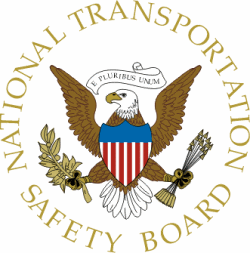Thu, Nov 29, 2012
Board Says Current Fire Protection Regs Are 'Inadequate'
The NTSB has issued three recommendations to reduce the impact of in-flight fires aboard cargo airplanes, saying current fire protection regulations are inadequate. The recommendations urge the FAA to require active fire suppression systems in all cargo containers or compartments of cargo aircraft. They also recommend improving early detection of fires within cargo containers and pallets and urge that cargo containers provide better fire resistance.

The NTSB has led or participated in the investigation of three fire-related accidents involving cargo aircraft in the past six years. One involved a UPS aircraft in Philadelphia that was substantially damaged in 2006; another was a UPS flight that crashed in Dubai, United Arab Emirates, in 2010; and the third was an Asiana Cargo flight that crashed into the East China Sea off the coast of South Korea in 2011. The Dubai and South Korea investigations are ongoing under the direction of the General Civil Aviation Authority of the United Arab Emirates and the Aviation and Railway Accident Investigation Board of Korea respectively.
“These fires quickly grew out of control, leaving the crew with little time to get the aircraft on the ground,” NTSB Chairman Deborah A.P. Hersman said in a news release. “Detection, suppression and containment systems can give crews more time and more options. The current approach is not safe enough.”
NTSB investigators found that the early stages of a fire burning inside a cargo container are concealed from detection. In later stages, when the fire grows and does become detectable, it rapidly intensifies and burns through the container to become a substantial threat to the aircraft and crew. In the UAE crash, the crew had just two-and-a-half minutes between the fire detection and the onset of aircraft system failures.
“I also want to commend the air cargo industry for actively researching and implementing new fire prevention and suppression technologies,” said Hersman, who was briefed this week by UPS on its efforts. FedEx is in the process of installing a fire-suppression system on its long-haul fleet.
More News
He Attempted To Restart The Engine Three Times. On The Third Restart Attempt, He Noticed That Flames Were Coming Out From The Right Wing Near The Fuel Cap Analysis: The pilot repor>[...]
Make Sure You NEVER Miss A New Story From Aero-News Network Do you ever feel like you never see posts from a certain person or page on Facebook or Instagram? Here’s how you c>[...]
From 2009 (YouTube Edition): Leading Air Show Performers Give Their Best Advice for Newcomers On December 6th through December 9th, the Paris Las Vegas Hotel hosted over 1,500 air >[...]
Aero Linx: NASA ASRS ASRS captures confidential reports, analyzes the resulting aviation safety data, and disseminates vital information to the aviation community. The ASRS is an i>[...]
“For our inaugural Pylon Racing Seminar in Roswell, we were thrilled to certify 60 pilots across our six closed-course pylon race classes. Not only did this year’s PRS >[...]
 NTSB Final Report: Rutan Long-EZ
NTSB Final Report: Rutan Long-EZ ANN FAQ: Turn On Post Notifications
ANN FAQ: Turn On Post Notifications Classic Aero-TV: ICAS Perspectives - Advice for New Air Show Performers
Classic Aero-TV: ICAS Perspectives - Advice for New Air Show Performers ANN's Daily Aero-Linx (06.28.25)
ANN's Daily Aero-Linx (06.28.25) Aero-News: Quote of the Day (06.28.25)
Aero-News: Quote of the Day (06.28.25)



